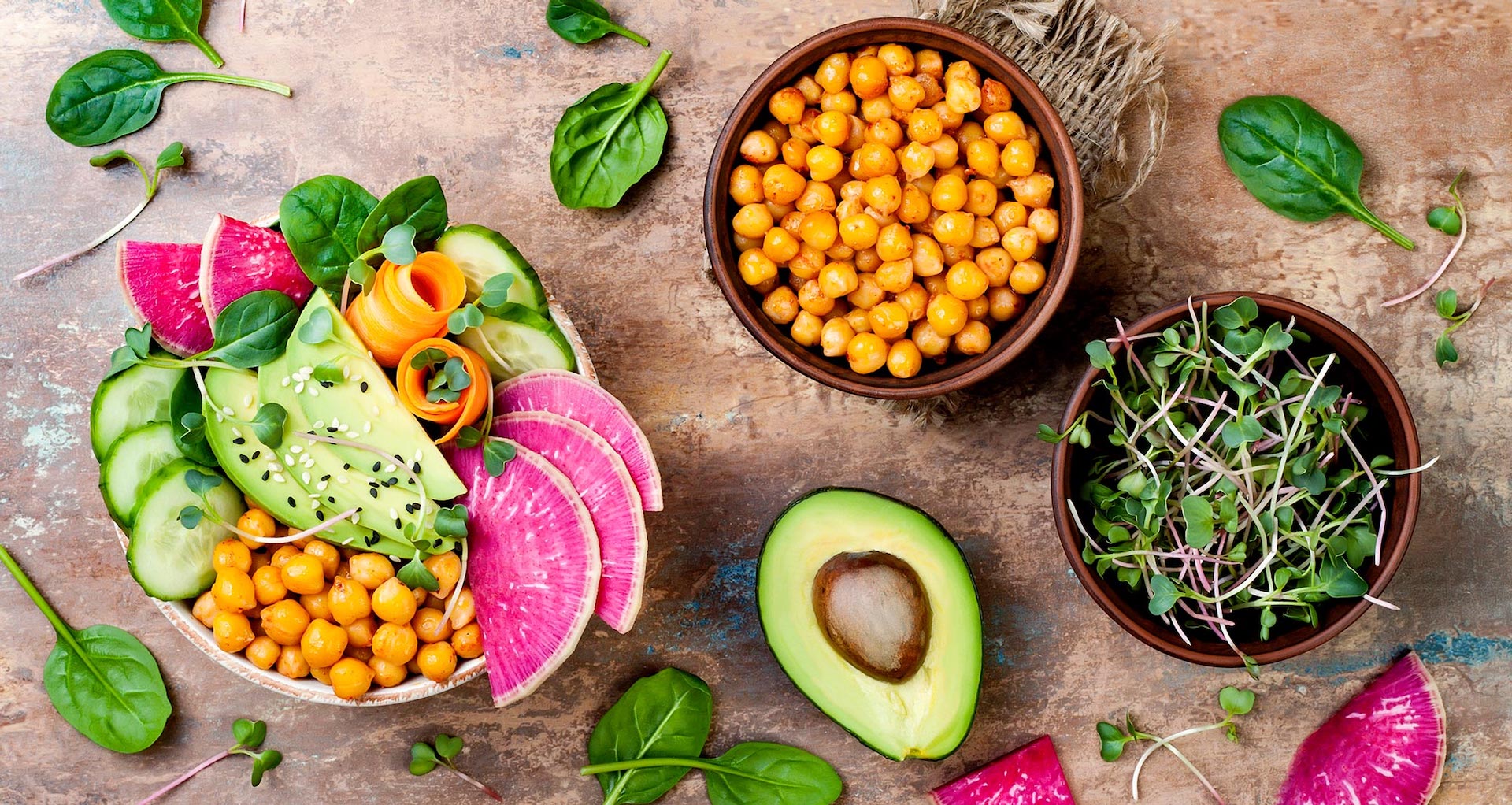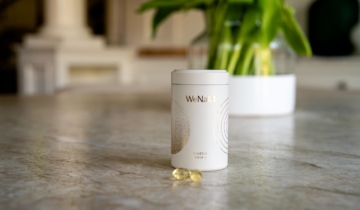Concern for the environment is rising and this is causing a shift in the way we eat. There has been a huge growth in veganism and vegetarianism which has so many benefits for the individual but also for the planet. There are many ways to follow a vegan lifestyle and the definition of the word can vary from person to person. While vegetarians will not consume any animal flesh, they may or may not still consume eggs, dairy cheese, dairy milk and other animal-based products. Vegans, on the other hand, will typically cut out all animal and animal derived foods from the diet. There also exists a form of flexible veganism where one will consume a majorly plant-based diet but allow themselves some animal derived foods on occasion.
When we cut all animal products out of our diet, we need to think about the nutrients that we may be cutting out as well.
Vitamin D
Many of us know that we can get vitamin D from the sun. However, when living in a province like Quebec, it can be very difficult to get adequate Vitamin D from October to May. So, it is very important to get it from your diet. Most food sources of vitamin D come from animals. So, to avoid deficiency when going vegan, it is important to look for food items fortified with vitamin D. Fortified orange juice, soy milk or breakfast cereals can be great options. You can also speak to a healthcare professional about vitamin D supplements.
Long chain Omega-3 Fatty acids
Long chain Omega-3 fatty acids are essential fats, meaning your body cannot produce them and you must get them from your diet. Omega-3 fatty acids are very important for the health of your body and brain. Again, most sources of omega-3 fatty acids are animal derived; however, some seeds such as chia seeds, flaxseeds and hemp seeds can provide omega-3 fatty acids to the diet.
Vitamin B12
Vitamin B12 plays an important role in the health of your blood, nerve cells and DNA. Lack of Vitamin B12 can have serious health consequences on the body. Shitake mushrooms and nutritional yeast are great vegan sources of B12. You can also look for fortified breakfast cereals. Just like Vitamin D, there are vitamin B12 supplements available—speak to your healthcare provider to determine if that is a better option for you.
Iron
Iron is a mineral that is vital to the growth and development of our bodies. There are two types of iron: heme iron (coming from animal sources) and non-heme iron (coming from non-animal sources). Luckily, non-heme iron can be easily consumed in the diet; it is found in most legumes, nuts, seeds as well as raisins, figs, molasses and dried apricots. It is important to note that non-heme iron may not be as well absorbed in the body as heme iron. Vitamin C can increase iron absorption in the body. So, include some sources of vitamin C such as peppers, broccoli or oranges to increase that iron absorption!
Calcium
Calcium has so many important roles in the body. From building and maintaining our skeleton to blood pressure regulation, calcium helps keep our bodies strong and healthy. Everyone knows that we can get our daily intake of calcium from milk; but what if you’re vegan? Calcium can also be found in many vegan-friendly foods. Soy foods, beans, lentils, nuts and seeds and green leafy vegetables can also be sources of calcium for someone following a vegan diet.
Takeaway
All that being said, veganism and plant-based diets in general can be a great way to support the health of the environment and the health of your body. One 16-week study showed major decreases in weight, fat mass and visceral fat in the vegan participant group. As well, plants provide antioxidants, prebiotics, and fiber to the diet. These compounds and nutrients can support a healthy gut by balancing the gut bacteria; a healthy gut is the first step towards a healthy body!
It is important to carefully plan your diet to ensure that you are getting all the nutrients you need to avoid any nutritional deficiencies. All of the nutrients we need to keep us healthy are available from vegan sources—you just have to learn where to look!
This article was contributed by: Ashley Finkel, Nutrition Student and Intern at Openspace Clinic.
References
- https://www.ncbi.nlm.nih.gov/pmc/articles/PMC6478664/
- https://www.healthline.com/nutrition/vitamin-d-101
- https://www.vegansociety.com/resources/nutrition-and-health/nutrients/iron
- https://www.healthline.com/health/vitamin-b12-foods-for-vegetarians
- https://www.healthline.com/nutrition/7-plant-sources-of-omega-3s
- https://www.healthline.com/nutrition/omega-3-guide#faq
- https://www.healthline.com/health/vegan-vitamin-d#vegan-sources
- https://www.healthline.com/health-news/how-a-16-week-vegan-diet-can-improve-your-gut-microbes#You-are-what-you-eat
- https://www.ncbi.nlm.nih.gov/pmc/articles/PMC6478664/
Feature image via Pinterest





 No products in the cart.
No products in the cart.